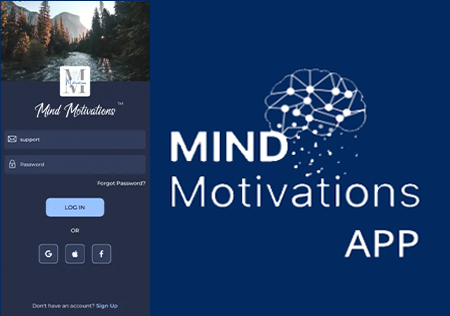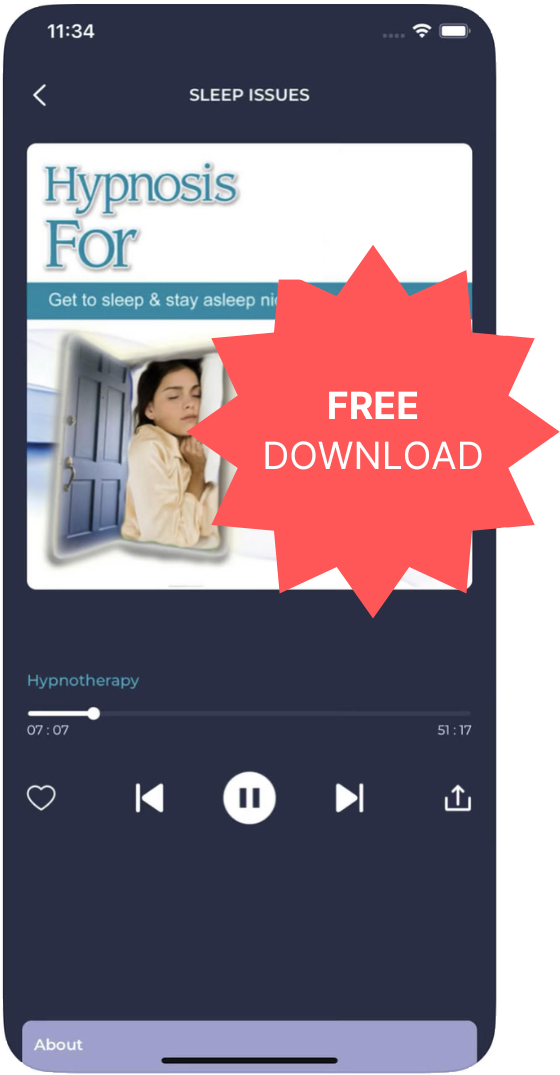NLP & Hypnosis: There is a Difference

Neuro-linguistic Programming (NLP)
The Australian Academy of Hypnosis does not significantly agree with the tenets of NLP and/or its many claims.
Every scientific study and clinical trial conducted thus far has failed to find any evidence as to NLPs effectiveness or even it's existence. Although many training institutions regularly pass NLP off as hypnosis, NLP is not hypnosis. So if you are looking for a hypnotherapist, or if you want to learn true fundamental hypnosis, don't confuse it with NLP. The two are not the same.
NLP has been described as "The art and science of personal excellence". More precisely, it is a way of understanding people's behaviour patterns, and then influencing their behaviour. As a way of gaining power over others NLP is popular with salespeople. As a way of gaining sensitivity to others, it is useful for social workers and therapists and businessmen, especially for conflict resolution. NLP is a way of excellence, then, only if excellence is defined in terms of effectiveness. Milton Erickson used precise observation of his patients to gain rapport with them and then to effect their present and their future. Richard Bandler and John Grinder and the Linguist Gregory Bateson took the essential structures of Erickson's work (and that of Fritz Perls and Virginia Satir) and developed it into NLP, although for one reason or another Bateson is not often mentioned or given any credit for his association and significant input.
The central concepts of NLP are: First, there is no such thing as a failure, only feedback. Every response is only information that can be used to tell you whether you are being effective. Second, people already have all the resources they need. All they have to do is to access these resources at the appropriate times. There are no problems only results. Third, anything can be accomplished if the task is broken down into small enough pieces.Don't ask "why?" ask "How?" Fourth, the individual in any group with the most flexibility will also control that group. Look at what you can do rather than the limitations of the situation you're in. Remain curious.
If NLP works, as its purveyors and disciples attest to, then it probably does so simply because it trains people in the skills of observation and sensitivity. It's like the central controversy over astrology: is it an art; is it a science or an intuitive divinatory practice? An astrological chart should trigger intuitions rather than be taken as a rigid system. NLP can develop interpersonal skills without being a science. Hypnosis has much scientific and medical credibility but presently NLP has very little. Having said that it should be considered that there is a resounding difference between scientific and experiential evidence, and NLP has experientially proven effective to help people make changes and break patterns. However NLP is not hypnosis, they are two distinctly different modalities of practice.
The origins of NLP
NLP began in the early 1970's from the collaboration of John Grinder, who was then an Assistant Professor of linguistics at the University of California, Santa Cruz, and Richard Bandler, who was a student of psychology at the university. Together they studied three renowned therapists: Fritz Perls, the originator of Gestalt therapy; Virginia Satir, innovative family therapist; and Milton Erickson, the medical demi-god of therapeutic hypnosis.
Initially they didn't concern themselves with theories; they produced models of successful therapy that worked in practice, and could be taught. They set down their original findings in four books, published between 1975 and 1977. At that time Bandler and Grinder were in close contact with Gregory Bateson, the British anthropologist, and writer on communication and systems theory. Bateson provided a profound and significant contribution to NLP, and only now is it becoming clear on exactly how influential he was.
By Dylan Morgan
A Scientific Assessment of NLP
A few years ago Dr. Heap, Principle Clinical Psychologist for the Sheffield Health Authority and a lecturer at Sheffield University, did a very careful and thorough study of all the research that has been done into certain claims of NLP, citing 70 papers in all. Specifically he was looking into the idea of the Primary Representational System (PRS), which is supposed by NLP to be a very important concept. It is claimed that people tend to think in a specific mode: visual, auditory, kinesthetic, olfactory or gustatory, of which the first three are the most common. NLP claims that it is possible to determine the PRS of a person by noticing certain words that she or he uses which will reveal the mode. It is also claimed that the direction of eye movements is an indicator of the PRS. The reason why it is said to be important for the therapist to determine the PRS of a client is that it is supposed to greatly enhance rapport if one then matches the clients PRS. According to traditional scientific research the reason our eyes move up and down or left and right is to spark the brain up to keep it aleret and active and able to process information.
These three assertions are capable of being put to controlled tests to determine how far they are true. Dr. Heap, who is also Secretary of the British Society of Experimental and Clinical Hypnosis, ploughed through the literature to summarise the results of many workers and found the following.
"Although the results have been mixed, the hypothesis that a person has a PRS which is observed in the choice of words has been found not to hold by the great majority of researchers. The hypothesis that a person has a PRS which can be determined by the direction of eye movements found even less support. The third hypothesis which was looked at is the practical one of whether or not we can improve our relationship with a client by matching the presumed PRS? Again the answer is a resounding NO."
There is no evidence that focusing on the presumed PRS modality adds anything to the widely recognised finding that matching general characteristics of verbal and non verbal communication may facilitate rapport. It is interesting that one researcher, Cody, found that therapists matching their clients' language were rated as less trustworthy and less effective.
Dr Heap Comes To the Following Conclusions:
"The present author is satisfied that the assertions of NLP writers concerning the representational systems have been objectively and fairly investigated and found to be lacking. These assertions are stated in unequivocal terms by the originators of NLP and it is clear from their writings that phenomena such as representational systems, predicate preferences and eye movement patterns are claimed to be potent psychological processes, easily and convincingly demonstrable on training courses by tutors and trainees, following simple instructions, and, indeed, in interactions of everyday life. Therefore, in view of the absence of any objective evidence provided by the original proponents of the PRS hypothesis, and the failure of subsequent empirical investigations to adequately support it, it may well be appropriate now to conclude that there is not, and never has been, any substance to the conjecture that people represent their world internally in a preferred mode which may be inferred from their choice of predicates and from their eye movements."
"These conclusions, and the failure of investigators to convincingly demonstrate the alleged benefits of predicate matching, seriously question the role of such a procedure in counselling." And he ends: "This verdict on NLP is … an interim one. Einsprech and Forman are probably correct in insisting that the effectiveness of NLP therapy undertaken in authentic clinical contexts of trained practitioners has not yet been properly investigated. If it turns out to be the case that these therapeutic procedures are indeed as rapid and as powerful as is claimed, no one will rejoice more than the present author. If however these claims fare no better than the ones already investigated then the final verdict on NLP will be a harsh one indeed."
This article first appeared in: The Journal of the National Council for Psychotherapy & Hypnotherapy Register.Spring 1993. The full work can be found in the volume, Hypnosis: current clinical experimental and forensic practices. Edited by Michael Heap and published by Croon Helm. It contains many other articles of great interest by reputable researchers.
More Scientific Studies Regarding the Non Efficacy of NLP
NLP - No Longer Plausible
Bertrand Russell's famous dictum
"I wish to propose for the reader's favorable consideration a doctrine which may, I fear, appear wildly paradoxical and subversive. The doctrine in question is this: that it is undesirable to believe in a proposition when there is no ground whatever for supposing it to be true."
NLP nonsense
Sharpley's 1984 literature review found "little research evidence supporting its usefulness as an effective counseling tool" no support for preferred representational systems (PRS) and predicate matching, then in a 1987 study states"there are conclusive data from the research on NLP, and the conclusion is that the principles and procedures of NLP have failed to be supported by those data".
Sharpley, C. F. (1984). Predicate matching in NLP: A review of research on the preferred representational system. Journal of Counselling Psychology, 31(2), 238-248. Sharpley C.F. (1987). "Research Findings on Neuro-linguistic Programming: Non supportive Data or an Untestable Theory". Communication and Cognition Journal of Counseling Psychology, 1987 Vol. 34, No. 1: 103-107,105.
United States National Research Council
USNRC produced a report, overseen by a board of 14 academic experts, stating that "individually, and as a group, these studies fail to provide an empirical base of support for NLP assumptions...or NLP effectiveness. The committee cannot recommend the employment of such an invalidated technique". The whole edifice of influence and rapport techniques "instead of being grounded in contemporary, scientifically derived neurological theory, NLP is based on outdated metaphors of brain functioning and is laced with numerous factual errors".
Druckman and Swets (eds) (l988) Enhancing Human Performance: Issues, Theories, and Techniques, National Academy Press.
Neuro-mythology
Barry Beyerstein (1990) asserts that "though it claims neuroscience in its pedigree, NLP's outmoded view of the relationship between cognitive style and brain function ultimately boils down to crude analogies." With reference to all the 'neuromythologies' covered in his article, including NLP, he states "In the long run perhaps the heaviest cost extracted by neuromythologists is the one common to all pseudosciences-deterioration in the already low levels of scientific literacy and critical thinking in society."
Beyerstein.B.L (1990). Brainscams: Neuromythologies of the New Age. International Journal of Mental Health 19(3): 27-36, 27.
Disillusionment
Efran and Lukens (1990) stated that the "original interest in NLP turned to disillusionment after the research and now it is rarely even mentioned in psychotherapy"
Efran, J S. Lukens M.D. (1990) Language, structure, and change: frameworks of meaning in psychotherapy, Published by W.W. Norton, New York. p.122.
Mutual exchange of myths
In his book, The Death of Psychotherapy, Eisner couldn't find 'one iota of clinical research' to support NLP. This is in direct contradiction to the claims made by NLP practitioners, who laud it as a great leap forward in understanding the mind. To be fair Eisner doesn't just finger NLP he also demolishes; Psychoanalytic Psychotherapy, Cathartic Therapies, Recovered Memory Therapies, Humanistic Psychotherapy, Behavioral and Cognitive Therapy, Strategic Family Systems Therapy, NLP, EFT, CBT, BCBT, DHE, EMDR, Gestalt Therapy, Implosion Therapy, Palm Therapy, Person Centered Therapy, Primal Therapy, Reframing, Thought Field Therapy, Direct Exposure Therapy, Spiritual Therapy and many others. The sheer scale of clinically unproven therapies is astounding. The Myth of Psychotherapy: Mental Healing As Religion, Rhetoric, and Repression by Thomas Stephen Szhasz is similarly damning. His claim is that almost anyone can sit down with anyone else, have a chat, and call it psychotherapy. The practitioners are unaccredited, or self-accredited, and the theories scientifically unsubstantiated. It is the mutual exchange of myths.
(Quick Fix + Pseudoscientific Gloss) x Credulous Public = High Income
This is the description of NLP by Lilienfield et al (2002) who conclude that NLP is "a scientifically unsubstantiated therapeutic method that purports to "program" brain functioning through a variety of techniques, including mirroring the postures and nonverbal behaviors of clients" and include it in their description.
Scott O. Lilienfeld, Steven Jay Lynn, Jeffrey M. Lohr (eds) (2004) Science and Pseudoscience in Clinical Psychology
Grandfather of CBT dismissive
Even Albert Ellis, the grandfather of cognitive behavioral therapy, famous for developing REBT (Rational Emotive Behavior Therapy) specifically identified NLP as one of those, "techniques that are avoided". This was the one therapy he abhorred because of its "dubious validity" (Dryden & Ellis, in Dobson, 2001: 331). Then again, Ellis published a book in 1965 entitled Homosexuality: Its Causes and Cure. Psychotherapists have a habit of seeing everything as a pathological condition that can be cured by their methods.
Hanging around in HR
Von Bergen et al (1997) showed that NLP had been abandoned by researchers in experimental psychology and Devilly (2005) makes the point that NLP has disappeared from clinical psychology and academic research only surviving in the world of pseudo new-age fakery and, although no longer as prevalent as it was in the 1970s or 1980s… is still practiced in small pockets of the human resource community. The science has come and gone, yet the belief still remains" Von Bergen, C W, Barlow Soper, Gary T Rosenthal, Lamar V Wilkinson (1997). "Selected alternative training techniques in HRD".
Human Resource Development Quarterly 8(4): 281-294. Grant J. Devilly (2005) Power Therapies and possible threats to the science of psychology and psychiatry Australian and New Zealand Journal of Psychiatry Vol.39 p.437
Claims of science
With a name such as Neuro Linguistic Programming, and a large collection of scientific sounding terms, NLP presents itself in the guise of various legitimate research streams such as neuroscience, neurolinguistics, and psychology. However, according to cognitive neuroscience Professor Michael Corballis (1999) "NLP is a thoroughly fake title, designed to give the impression of scientific respectability." Professor Singer (1999) states that "NLP often associates itself with science in order to raise its own prestige" Anthropologist Professor Winkin considers such promotion to be "intellectually fraudulent" and compares NLP's association with science to astrology's association to astronomy.
There is significant evidence of the tendency of NLP proponents to avoid the proper testing of NLP. As with any other science, theory is central to behavioral science. However, Gregory Bateson in page ix of the Structure of Magic Volume I claims that, "The behavioural sciences, and especially psychiatry, have always avoided theory..." The co-originators have also stated, "We are not psychologists, and we're also not theologians or theoreticians". Prof Singer (1996) states that "none of the NLP developers have done any research to 'prove' their models correct though NLP promoters and advertisers continue to call the originators scientists and use such terms as science, technology and hi-tech psychology in describing NLP". Advertising bodies in the UK have asked for NLP proponents to stop promoting NLP as a new science. NLP websites and books continue to call NLP a science.
'Neurobabble' is a term used in psychology to describe what promoters of some self development courses tend to do in their use of contrived jargon. This is related to the term; psychobabble. Neuroscience in the 1970s was just beginning to make discoveries about the brain, and it was becoming popular for newspapers to have articles about the more recent discoveries. So adding Neuro to a title tended to make it more attractive and respectable sounding. Since many may be less likely to see the difference between science and pseudoscience, it became easy to dupe consumers into joining seminars and buying into product lines. Fortunately, the public in general are becoming more aware of babble of all sorts, and with increasing levels of web 'know how' and education; dubious subjects are more likely to be identified as such.
NLP is said to be the study of the structure of subjective experience, but a great deal of attention seems to be paid to observing behaviour and teaching people how to read "body language." But there is no common structure to non-verbal communication, any more than there is a common structure to dream symbolism. There certainly are some well-defined culturally determined non- verbal ways of communicating, e.g., pointing the back of the hand at another, lowering all fingers but the one in the middle, has a definite meaning in American culture. But when someone tells me that the way I squeeze my nose during a conversation means I am signaling him that I think his idea stinks, how do we verify whether his interpretation is correct or not? I deny it. He knows the structure, he says. He knows the meaning. I am not aware of my signal or of my feelings, he says, because the message is coming from my subconscious mind.
How do we test these kinds of claims? We can't. What's his evidence? It must be his brilliant intuitive insight because there is no empirical evidence to back up this claim. Sitting cross-armed at a meeting might not mean that someone is "blocking you out" or "getting defensive". She may just be cold or have a back ache or simply feel comfortable sitting that way. It is dangerous to read too much into non-verbal behaviour. Those splayed legs may simply indicate a relaxed person, not someone inviting you to have sex. At the same time, much of what NLP is teaching is how to do cold reading. This is valuable, but an art not a science, and should be used with caution.
Finally, NLP claims that each of us has a Primary Representational System (PRS), a tendency to think in specific modes: visual, auditory, kinesthetic, olfactory or gustatory. A person's PRS can be determined by words the person tends to use or by the direction of one's eye movements. Supposedly, a therapist will have a better rapport with a client if they have a matching PRS. When subjected to scientific scrutiny none of this can be or has been supported by the scientific literature.
Rick Collingwood's Opinion of NLP
I've never been strong in faith regarding the promised rapid benefits of NLP: Rapid and miraculous cures often rapidly and miraculously undo themselves. I harbor suspicion regarding the, latter day, hybrids of hypnosis that promise to undo a lifetimes worth of issues in just a couple of sessions. I refer here to the many hybrids of hypnosis such as: Private Subconscious Healing PSH, Neuro Linguistic Programming NLP, Time Line Therapy TLT, and Guided Visual Imagery. All of these modalities, and many others with snappy names and slick packaging, have little evidence base and often cost enormous amounts of money to learn.
Many of the continually emerging latest and greatest psycho-somatic, mental, and emotional therapy and self improvement modalities employing mind work of any kind, find their origins in hypnosis. I am not referring here to Ericksonian hypnosis, because without doubt Erickson brought to hypnosis the clever and skilled use of the Metaphor. It also cannot be disputed that Erickson was a brilliant Psychiatrist with a love for humanity and an exceptional understanding of the human mind and psyche. It should also be remembered that Erickson was not an NLP practitioner and his work was only part of what was studied to come up with the theory of NLP.
A wise individual will question why Erickson's name is so often linked to the modality of NLP. To me the answer is obvious. Simply to take commercial advantage of Erickson's name and give NLP a false and undeserving significance? I think Milton would turn in his grave if he knew what distortions were birthed from his work via amateurs and imposters. Bandler and Grinder did in actual fact interview Erickson and he later made a statement about the visit that went something like "They thought they got the whole nut, but I only gave them the shell".
Erickson's hypnosis was a medical model that has always required a deep understanding of human behaviour, the mind, and the psyche. Milton Erickson's work was intended to be used in conjunction with other medical and psychological therapies, often involving significant psychiatric and organic mental health disorders. It was not intended to supposedly turn any individual into an expert on human behaviour simply by completing a one week, one month, or even a one year training program in NLP.
Ladies and gentlemen you to can become a "Master Practitioner of NLP and Hypnosis" in only ten days for only (depending on which organisation is training it) five to ten thousand dollars. Awesome, a Master Practitioner you say? What a crock I've been dabbling with hypnosis since I was 12 years old and began practicing as a therapist in 1994 (that's 15 years). I'm 52 now, so that's 40 years of interest and fifteen years as a practitioner and a trainer and I'm pretty damn good at what I do. As far as hypnosis is concerned I can mix it with the best of them, but wouldn't have the gall or the audacity to call myself a master. Anybody who thinks they can become a master at anything worthwhile with less than 20 years of passionate hard work and dedication may as well sign up for membership into the flat earth society.
Maybe I should rename my hypnosis training to Advanced Mind Dynamics TM and conduct massive 'ra ra' seminars for $100 and then up-sell the participants into 'la la land' for only another $7000? That way I could also write a book about my amazing new incredible modality and become a multi-millionaire in less than two years.
There's is no such reality as Something for Nothing, but there is the reality of Nothing for Something. "Neuro Linguistic Programming" my foot. In my opinion "Neurotic Learning Processes" is a far more suitable acronym for the fancy name with the over the top promise.

















Post new comment